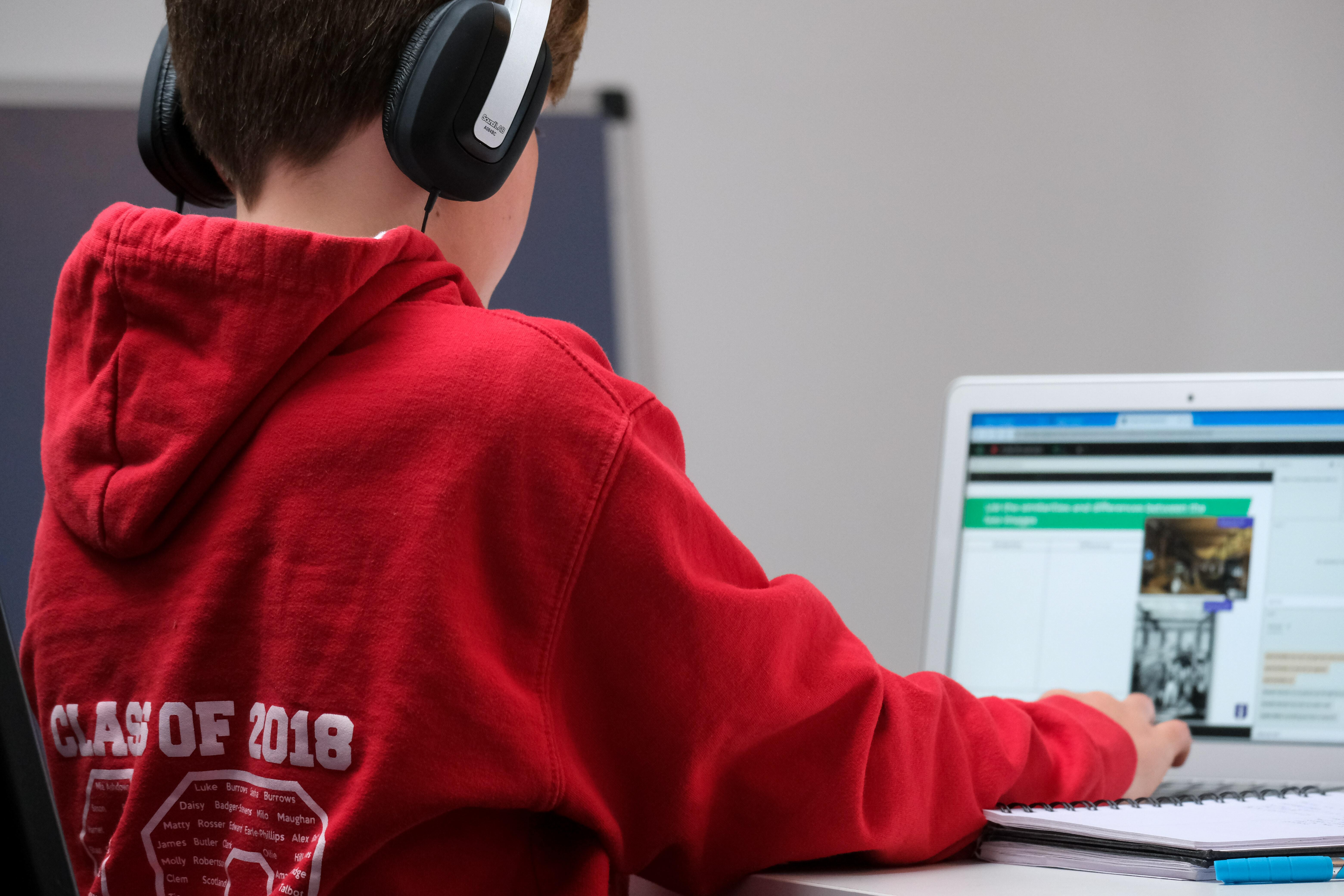The days of people equating "homeschooling" to scenes from Little House on the Prairie are long gone thanks to COVID-19. Sheltering in place and months or years of virtual school for millions of students shattered stereotypes and changed the minds of hundreds of thousands of parents across the country.
Prior to the pandemic, 28% fewer parents chose to homeschool their children. Today, one of every 12 school-age children in America is homeschooled.
With the influx of new homeschool parents, there's also been an increase in resources. Go online, and you'll find an enormous amount of information on how to home school, what to expect, where to find curriculum resources, and more.
But that's also a problem.
How do you know what's good information and what's not?
To be honest, it's tricky. Because the answer is different for everyone.
Homeschooling looks different for everyone. At least a little.
In this post, we hope to give you plenty of answers and resources to clarify whether homeschooling is right for you. But also to help you through those first few steps in your homeschool journey.
Ready? Let's get to it!
Planning and Preparation
You can't (or shouldn't) make any big decision without a plan. Especially one involving your kids. So, first, we'll discuss how to make a plan for your home school.
Step 1: Research Your State's Homeschool Laws
Not all states' laws are created equal - far from it. Some states, like Pennsylvania, have stringent laws regarding homeschooling, while others, like Oklahoma, have very few regulations. It's important to know your state's laws and procedures, especially if you're homeschooling in PA or another strict state.
Determining what your state Department of Education mandates is necessary to ensure you homeschool legally and do not inadvertently compromise your child's future.
The Homeschool Legal Defense Association (HSLDA) is a fantastic resource for all things related to homeschooling and the legislative branch of the US. They offer many free resources but also offer affordable membership with added benefits.

Step 2: Follow Your State's Legal Requirements
Once you've read your state's homeschooling laws, it's time to comply. That often begins with filing a notice of intent with your local school district or superintendent.
Some states require this notice only once, while others require it annually. Just be sure to follow your state's regulations appropriately.
It's also important to know the mandatory age for school attendance in your state. They can range from five to 19. If needed, check with your Department of Education or the HSLDA for additional advice.
Record-Keeping
Make a note of what records you'll need to keep (attendance, grades, test results), how often you need to update records (or report, if necessary), and how often you'll need to evaluate or submit your child for standardized testing (if required).
Making a calendar with reminders of when key records or reports are due can help keep you on track and prevent you from feeling overwhelmed.
Also, note how long you'll need to store records after the school year is completed. Some states don't require this, but those that do can require record storage for several years.
Here are two record-keeping suggestions from two very different homeschool moms. One is a hyper-organized mom who can't stand clutter. The other is a laid-back mom who goes with the flow. But both understand the necessity of keeping records organized.
Required Subjects
Like any traditional school with a mandated curriculum, many states require core subjects that homeschooled students must learn.
Typically, these include:
Language arts
Math
Science
History
Of course, these requirements depend on your state, so remember to look them up before planning your curriculum or choosing your program.
Choosing Your Program
As a homeschooling parent, you also become your child's teacher, principal, and school administrator. Choosing the right program and/or curriculum can make or break your school year.
There's a lot to think about. Yes, you have to tick all the boxes put forth by the state, but you also need to consider your child's age, interests, grade level, and more.
Fortunately, the best programs out there consider this and do a great job of helping parents educate their kids in fun and effective ways.
Many, if not most, allow students to go at their own pace. As one of the major benefits of homeschooling, this ensures the student has enough time to understand the topic before moving on, but doesn't linger on a subject too long and becomes bored.
In this next section, we'll explore some programs we love, why we love them, and what they offer that other programs don't. Let's start with online homeschool programs.
Online Homeschool Programs
Online homeschooling programs have become extremely popular and it's no surprise. Technology is so integrated with our lives we're never without it. So it makes sense that we utilize it to teach our kids.
Various online programs are available, including online public schools, free online programs, and fully accredited online academies. It's important to know the differences in order to choose which best fits your family.

Online public schools are free programs provided by local public school districts which allow children to participate as public school students at home. An example of an online public school would be Connections Academy. Unfortunately, these are not available in all areas.
There are online homeschool programs that are available for free to anyone. One such program is Khan Academy. It's robust, engaging, and, at no cost, extremely affordable.
Of course, many online homeschooling programs are budget-friendly, although not free. For example, BJU Press has an impressive online program for home schooled students from K3-12. There's also Abeka Academy which offers accredited and unaccredited programs for K4-12 - you pick the right option for you!
If you're looking for an online school with accreditation, you also have some excellent options. Veritas Academy and Calvert Academy offer fully accredited online curricula for homeschooled kids in grades K-12.
Traditional Homeschool Curriculum
There's still room for homeschooling with books, workbooks, pencils, and paper. If you and your family prefer a more traditional approach, here are some options that should be right up your alley.
Sonlight (preK-12th grade)
Abeka (preK-12th grade)
AOP Lifepac (K-12th grade)
AOP Horizons (preK-12th grade)
Doing a hybrid program by mixing in some online video lessons is another way many homeschoolers keep things interesting and their students engaged. Remember, it's your home school. Do it your way!
Other Considerations
Depending on your state, you may be able to utilize programs and resources offered by your local school district, such as team sports or science labs. If not, there are other ways to get your kids involved in extracurriculars.
You can search online for local clubs and sports teams, look up homeschool groups and co-ops, or even start your own. Social media is also a great place to find and connect with other homeschooling families.
Clubs like Home Hacker Camp and Trail Life put you in touch with other homeschoolers with similar interests. They help supplement your home school education by fostering a love of learning.

High School/College Prep
Many parents get a little nervous as their children become high school students. It's a reminder that college is right around the corner, and all those records they've (hopefully) kept will make the difference between acceptance and rejection.
Tip: When considering programs for your high school student, check into whether automatic grading is offered and whether the program keeps records for you. These perks can save you a ton of time and trouble.
Here are some specific resources for your high school student to take advantage of as a homeschooler to help give them a head start.
edX - free online courses from colleges and universities
College Prep Genius - preparation for SAT, ACT, and CLT
The Circe Institute - providing inspiration, information, and insight to classical educators
Professor Carol - Music, History, Arts, and Culture (section on College Prep)
Mr D Math - Math (and other courses) along with boot camps for ACT and SAT prep
There are many more, and probably some in your local area. A simple Google search will reveal what treasures are nearby for your high schooler to explore.
Some online programs even offer dual enrollment and college credit so your high schooler can get a jump start on college. Juniors and Seniors enrolled in Calvert Academy's dual enrollment program can earn college credit while still in high school for just $79 per month.
Homeschoolers also often have an opportunity to participate in community college classes while still in high school. Check with your local community college to see if they have a program for homeschool students.
Although homeschoolers don't always enjoy the full graduation ceremony with caps and gowns, some do. Some homeschool groups hold graduations yearly to celebrate the students' achievements. Check your area, and make one if you don't find one!
Final Thoughts
Homeschooling can be overwhelming.

Whether your child is a toddler and you're planning far in advance, or your child is entering middle school and has hit a rough patch, this path isn't easy.
But seeing your child go from a struggling public school student to a thriving homeschooler is a privilege you'll never regret.
Watching your toddler blossom into a lifelong learner with a thirst for knowledge is a blessing you'll always admire.
Hopefully, this post has helped answer some questions and given you some resources to investigate.
Homeschooling isn't for everyone, but if it's right for you, you'll know it be so glad you decided to start!
You know the quote from Teddy Roosevelt, "Nothing worth having comes easy?" Well, that's extra true when it comes to raising kids... and homeschooling.
Definitely not easy.
Definitely worth it.
And here’s another quote that might help.
“I can do all things through Christ who strengthens me.” - Philippians 4:13
Happy homeschooling.
 Resources
Resources
 Curriculum
Curriculum
 Workshop Sessions
Workshop Sessions

